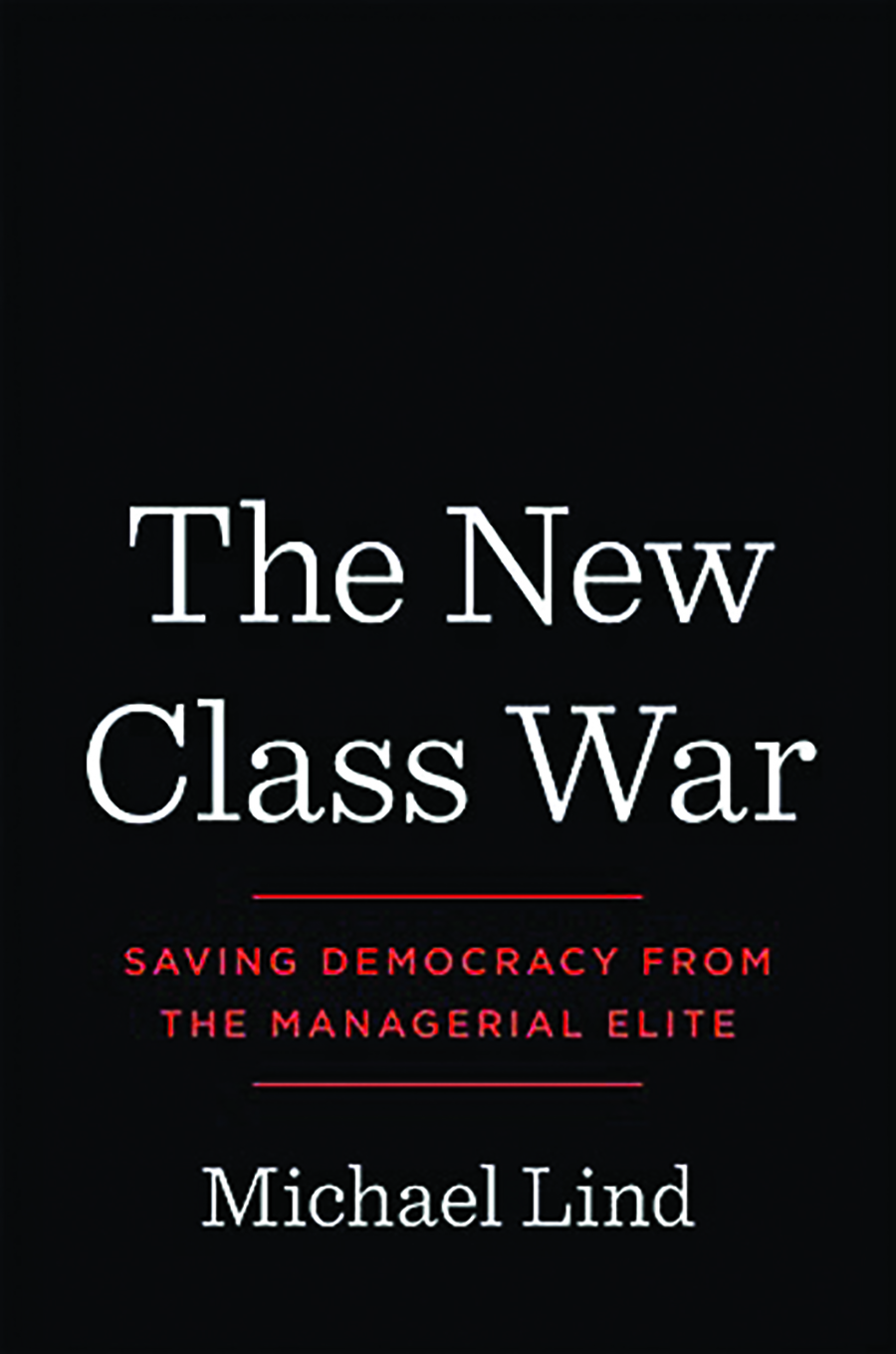Michael Lind began his career as the sort of public intellectual who used to be called an enfant terrible. A prolific writer and the co-founder of the New America think tank, Lind has tirelessly promoted a neo-Hamiltonian approach to trade and economic development that calls for cooperation between a strong government and large, powerful businesses. His numerous critics are a testament to his independence. In the 1990s, figures as divergent as Paul Krugman and Harvey Mansfield swatted at him as if he were an impudent pest. Krugman called him ignorant for suggesting, accurately, that productivity growth in the United States might not be enough to raise the country’s wages in the face of outsourcing and foreign competition. Mansfield characterized Lind’s first book, The Next American Nation, as thin, incoherent, and slapdash, counseling Lind to “wait many years” before publishing another. By my count, he has written 15 since then.
His latest is The New Class War: Saving Democracy from the Managerial Elite, a short volume that examines the populist revolts in the U.S., Britain, and Western Europe. All of them, Lind says, are part of a transatlantic class war being waged on three fronts — politics, economics, and culture. For a brief period after World War II, working-class and rural constituencies enjoyed real bargaining power in all three realms. Since then, the West has seen a “technocratic neoliberal revolution from above” that has systematically destroyed the working class’s ability to participate in national life. The result has been the rise of working-class populism, culminating in Brexit and the election of President Trump.
Lind’s diagnosis draws heavily on two sources: James Burnham’s theory of the managerial revolution and John Kenneth Galbraith’s economic sociology. Burnham, a onetime Trotskyist turned National Review editor, is now a voguish figure on the Right. His crucial insight, adopted by Lind, was that capitalism had been fundamentally transformed during the 20th century. The bourgeoisie, the actual owners of the means of production, had been usurped as the ruling class by the “managers,” described by George Orwell in an essay on Burnham as “business executives, technicians, bureaucrats, and soldiers.” Nineteenth-century capitalism, in other words, had given way not to socialism but to technocracy. Yet the subtitle of Lind’s book is a little misleading. For him, it is neither possible nor desirable to overthrow the managerial elite. His goal is to compel this elite to share power — as it did in the mid-20th century.

Lind’s idea of class is defined above all by education, and as his book goes on, he begins to drop the Burnhamite terminology in favor of references to a college- and graduate-educated “overclass.” Since the late 1970s, Lind argues, this overclass has pushed “neoliberalism,” or “the synthesis of the free-market economic liberalism of the libertarian right and the cultural liberalism of the bohemian/academic left.” In policy terms, neoliberalism has meant deregulation, deunionization, offshoring, and mass immigration. All of these have disproportionately hurt the working classes of the developed world while benefiting college-educated professionals.
Since the Carter administration, working-class whites in the U.S. have sporadically rebelled against the overclass, voting for populist candidates such as Pat Buchanan and Ross Perot. Lind pays particular attention to the neglected origins of these rebellions in state and local politics, especially urban politics. Trump, Lind argues, nationalized the big-city pattern in which an alliance of white, upper-class “gentry liberals” and racial minorities contended with various “white ethnics,” in a clash pitting the top and the bottom of the social scale against the middle. From this perspective, Lind writes, “Donald Trump is not Der Fuhrer. He is Da Mayor of America.”
Lind insists, however, that the vital social category is class and that our current problem is an imbalance of class power rather than a clash of different identity groups. He regards populism as an insufficient solution, “a symptom of a sick body politic, not a cure.” He also criticizes a host of wonkish fixes that, in his view, seek to “anesthetize the population to the pain of low wages and rising inequality.” He scythes through policies such as expanded access to higher education, universal basic income, the geographic relocation of blue-collar workers, and antitrust enforcement against large companies, all of which are counterproductive or insufficient, “like prescriptions of aspirin for cancer.” And he is dismissive of the idea, beloved of some on the millennial Left, that the Democratic Party can become the engine of a new class compromise. The Democrats’ recent turn to social democracy, Lind says, “will evaporate like the morning dew” once the party regains power. Its increasingly affluent base will be unwilling to accept the tax burdens required to fund programs such as “Medicare for all.”
What the working class really needs, according to Lind, is “what it once possessed and no longer has”: “countervailing power,” Galbraith’s term for popular institutions such as unions, religious organizations, and mass-membership political parties capable of checking the power of the overclass. The problem, which Lind acknowledges but does not sufficiently discuss, is that the communities that could plausibly coalesce into mass institutions are far weaker today than at midcentury. “The development of countervailing power requires a … capacity for organization,” Galbraith wrote in 1952. Across Western societies, that capacity has been enervated by the very changes Lind decries.
This weakness aside, Lind has painted a grim and convincing portrait of the state of Western democracy. In the absence of a new class settlement, he warns that America will drift toward Latin American-style politics, oscillating between oligarchy and demagogic backlash. In an epilogue, he concedes that restoring the working class to dignity will probably require “the context of renewed great-power competition.” One hopes this isn’t a euphemism for world war.
